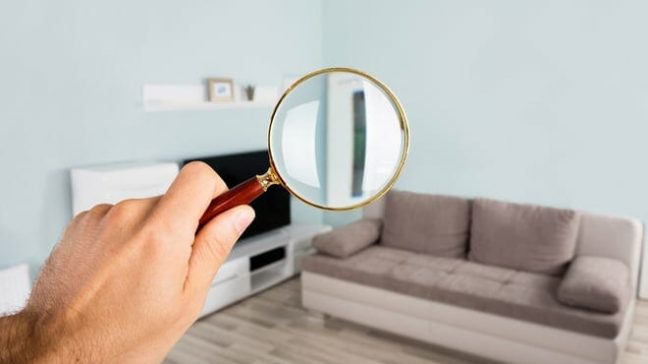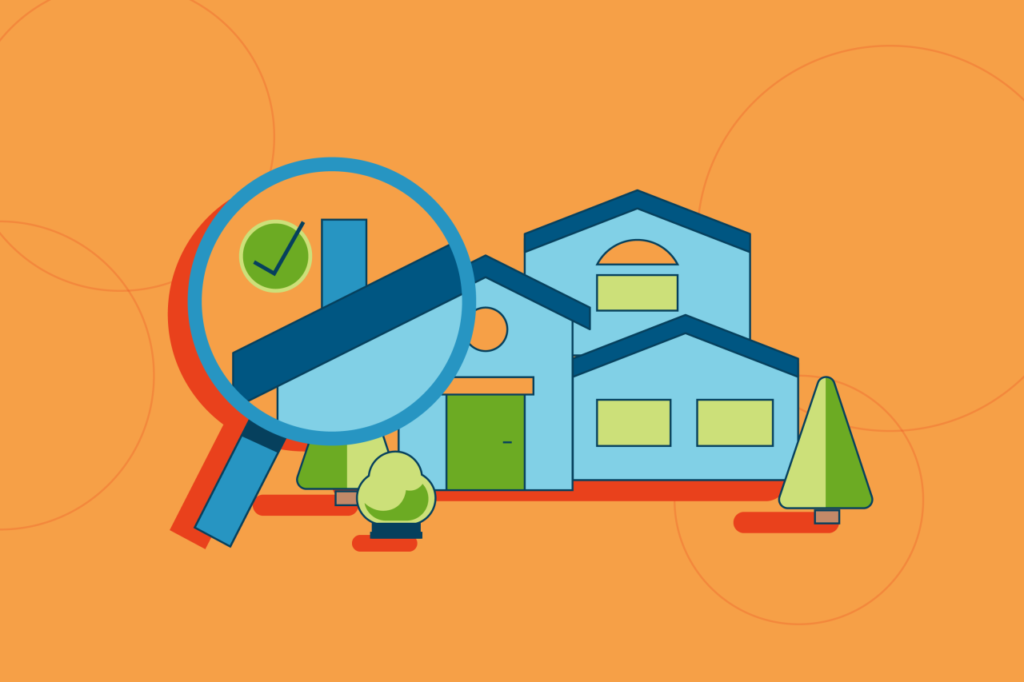What to Expect During a Home Inspection
A Home Inspector Is Your Protector
An inspector helps you make sure a house isn’t hiding anything before you commit for the long haul. (Think about it this way: You wouldn’t even get coffee with a stranger without checking out their history.)
An inspection is all about lists.
Before an inspection, the home inspector will review the seller’s property disclosure statement. (Each state has its own requirements for what sellers must disclose on these forms; some have stronger requirements than others.) The statement lists any flaws the seller is aware of that could negatively affect the home’s value.
The Inspector Won’t Check Everything
Generally, inspectors only examine houses for problems that can be seen with the naked eye. They won’t be tearing down walls or using magical X-ray vision, to find hidden faults.
It’s Your Job to Check the Inspector
Now you’re ready to connect with someone who’s a pro at doing all of the above. Here’s where — once again — your real estate agent has your back. He or she can recommend reputable home inspectors to you.
Show Up for Inspection (and Bring Your Agent)
It’s inspection day, and the honor of your — and your agent’s — presence is not required, but highly recommended. Even though you’ll receive a report summarizing the findings later on, being there gives you a chance to ask questions, and to learn the inner workings of the home.

Complete Home Inspection Tips For Buyers Like You
Looking for a professional inspector
Your best ally during a home inspection is a licensed, professional home inspector who will conduct a detailed, in-depth inspection. You can gather recommendations, search online and look for reviews, or use resources such as Zillow’s Agent Finder Tool.
What to do on inspection day
On inspection day, you and your agent should be present during the entire process. The seller’s agent will likely be there as well to address any possible questions asked by the inspector. Remember to set aside the entire morning or afternoon in your schedule, as a home inspection can take up some time – you want to avoid rushing through it.
Your home inspection checklist
Below are some of the important items you should look at closely during the inspection. If some of the items on this list aren’t covered in your inspector’s final report, find out why.
Home inspection checklist: What you should prepare for
What is a home inspection?
A home inspection is conducted by a certified home inspection professional who walks through the home and evaluates its condition. Home inspectors generally look at a home’s major components and systems (the furnace, air conditioning unit and foundation, for example) to determine if there are any issues that require immediate attention.
How to prepare for a home inspection
It’s crucial to know what your home inspector is looking for. Doing some homework ahead of time will help you ask in-depth questions about the home inspection report so you thoroughly understand the home’s condition and what issues need to be addressed.
What home inspectors look for
While a professional home inspection checklist can vary, home inspectors are focused on a home’s physical components and systems — both inside and out. Knowing what your inspection does (and doesn’t) cover can help guide your next steps.
What home inspectors don’t look for
A home inspector generally looks for components that are readily and easily accessible. Each state’s standards may differ so check with organizations such as the International Association of Certified Home Inspectors and American Society of Home Inspectors to find out the specific requirements for your area.
Who pays for a home inspection?
In most cases, you, the homebuyer, pay for the inspection at the time of service. While fees can vary depending on a home’s location, size and age, a home inspection costs an average of $300 to $450, according to Angie’s List.
Why You Need to Know How to Find & Choose a Home Inspector
Choose carefully. The right home inspector can save you from buying a money pit. And that’s just one reason you need to know how to choose a home inspector. Find out more below.
Of all the various professionals involved in the homebuying process, probably the most underrated is the home inspector. As the buyer of a home filled with unknowns, a qualified home inspector can be your best friend. He or she can highlight any significant flaws in the property and give you an opportunity to have them repaired before closing.
What Exactly Does a Home Inspector Do?
A home inspector’s job is to determine the integrity of a home, and its various components. In inspecting a home, they’re looking to determine its safety, livability, and the utility of its systems. A qualified home inspector will do a thorough inspection of the home, then provide a written report on every major aspect of the property, including:
Why You Shouldn’t Take the First Referral or One Referred by Your Realtor
If you’re working with a real estate agent, he or she will be anxious to provide a home inspector. There’s a reason why this is true; some real estate agents prefer home inspectors who don’t make a habit of reporting conditions that will “kill” their deal. That kind of inspector will be good for the real estate agent, but not for you as the homebuyer.
Credentials You Should Look For
Unfortunately, home inspection is something of an open field. People from different backgrounds consider themselves to be home inspectors. It could be a carpenter, a former real estate agent, or even an appraiser who does home inspection on the side. None of these backgrounds indicate the person is qualified as a full-service home inspector.
Questions to Ask a Home Inspector Before You Make Your Decision
Since you’re paying the home inspector, you have a right to ask any questions you’d like. Start with these.

What You Need To Know Before Hiring A Home Inspector
Evaluate The Cost Of The Inspection
The cost of a home inspection can vary. Factors such as location, size of the home and inspections being done can determine how much you’ll pay. Don’t necessarily go for the cheapest option: Buying a home is probably the largest investment you’ll ever make, and you don’t want to jeopardize it by choosing an inexperienced inspector because they have the lowest price. Your inspection will cost hundreds or thousands up front, but it could save you a lot of money in the long run.
Understand What Your Home Inspection Will And Won’t Cover
Before your home inspection, it may be a good idea to understand what your home inspection will and won’t cover. You can read the Standard of Practice as well as the Code of Ethics for home inspectors, made available by American Society of Home Inspectors. Both publications give you guidelines for what you should expect from your home inspection.
Watch Out For Red Flags
You need to be there while the inspection is underway. If the inspector insists that you don’t need to be there, this may be a red flag. You should be with them walking through your soon-to-be home and observing anything they may see as a problem or potential issue.
There is a chance that you will need some home repairs. When conducting your interview with your potential inspector, ask if they can do repairs based on the inspection. If they say yes, you may want to question their motives for the inspection, as this is seen as a conflict of interest.
Interview Your Potential Candidates
Once you have a reputable inspector in mind, reach out to them. There are several questions you will want to verify before moving forward. Here are a few questions to ask your inspector before hiring them.
Ask For Referrals And Check Reviews
Who do you trust the most? Most likely, it’s your friends and family. When researching home inspectors in your community, you want to reach out to inspectors whom your friends and family would recommend and trust.